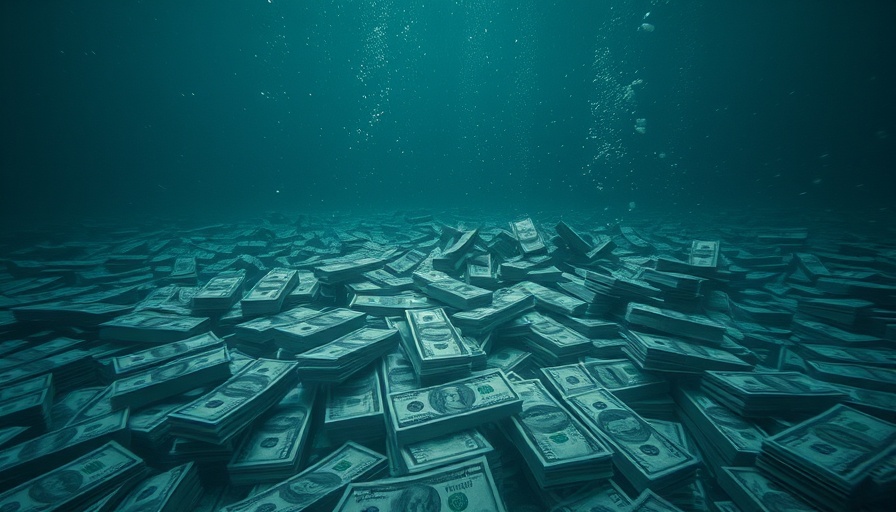
The Mysterious Allure of Ocean Treasures
The ocean is often seen as a vast, unyielding blue blanket that covers our planet, yet beneath its waves lies an untold story of treasures and mysteries. From shipwrecks laden with gold to ancient artifacts lost to time, the depths of the ocean harbor remnants of history that could reshape our understanding of past civilizations and conflicts. This article explores the fascinating intersection of oceanic treasure hunting and its historical significance, particularly as it relates to conflicts and economic shifts in Africa and beyond.
In 'The Trillion Dollar Treasure Hidden in the Ocean', the discussion dives into the allure of underwater treasures, exploring key insights that sparked deeper analysis on our end.
Historical Context: What Lies Beneath
Throughout history, oceans have acted as silent witnesses to humanity’s greatest triumphs and tragedies, especially during periods of colonization and war. The treasures hidden under the waves often tell stories of ambition, conflict, and cultural exchange. For instance, many ships laden with valuables sank during wars, including World War II, leaving their cargo hidden in deep waters. Some of these treasures remain undiscovered, holding potential clues to economic systems and conflicts of their time.
Global Significance of Underwater Finds
The intriguing potential of underwater treasure extends beyond mere monetary value. Discoveries made in various parts of the world can illuminate our understanding of trade routes, colonial exploits, and cultural interactions between nations. For African nations, particularly those along coastlines, uncovering hidden treasures could also unlock discussions about reparations and restitution, offering a fresh perspective on historical injustices.
Exploring the Future: Opportunities in Marine Archaeology
As technology advances, opportunities for marine archaeology are expanding. From sonar mapping to advanced submersibles, the quest to unearth oceanic treasures holds significant potential for economic benefits, tourism, and education. Countries with rich maritime histories, especially in Africa, can leverage these finds to promote cultural heritage and a renewed sense of national pride. Furthermore, ethical treasure hunting practices can foster international collaboration in preserving these underwater treasures for future generations.
Counterarguments: The Debate on Treasure Hunting
Despite the excitement surrounding treasure hunting, there are voices of dissent. Critics argue that some treasure hunters exploit these underwater sites for profit without regard for historical context or local communities. The debate often arises around who has the right to claim treasures found in international waters: is it those who uncover them, the nations they belong to, or the descendants of those who once owned them? This conversation is critical in shaping future laws around maritime archaeology, particularly in light of historical injustices in Africa.
Decisions You Can Make with This Knowledge
For the audience curious about this thrilling aspect of history, the first step is to understand the broader implications of underwater discoveries. Engaging in conversations about conservation, responsible tourism, and historical reparations can help build a more ethical approach to what is often viewed as mere treasure hunting. Additionally, supporting organizations that promote ethical treasure recovery can play a crucial role in ensuring these treasures are respected and preserved.
Conclusion: The Ocean's Call to Action
As we delve into the ocean's depths, we uncover not just gold and jewels but stories that bind us to our past. Understanding the significance of these treasures can enrich our knowledge of history and its continued influence today. Engaging in these narratives allows us to foster a deeper connection to our global heritage, and recognize the lessons hidden beneath the waves.
 Add Row
Add Row  Add
Add 


Write A Comment